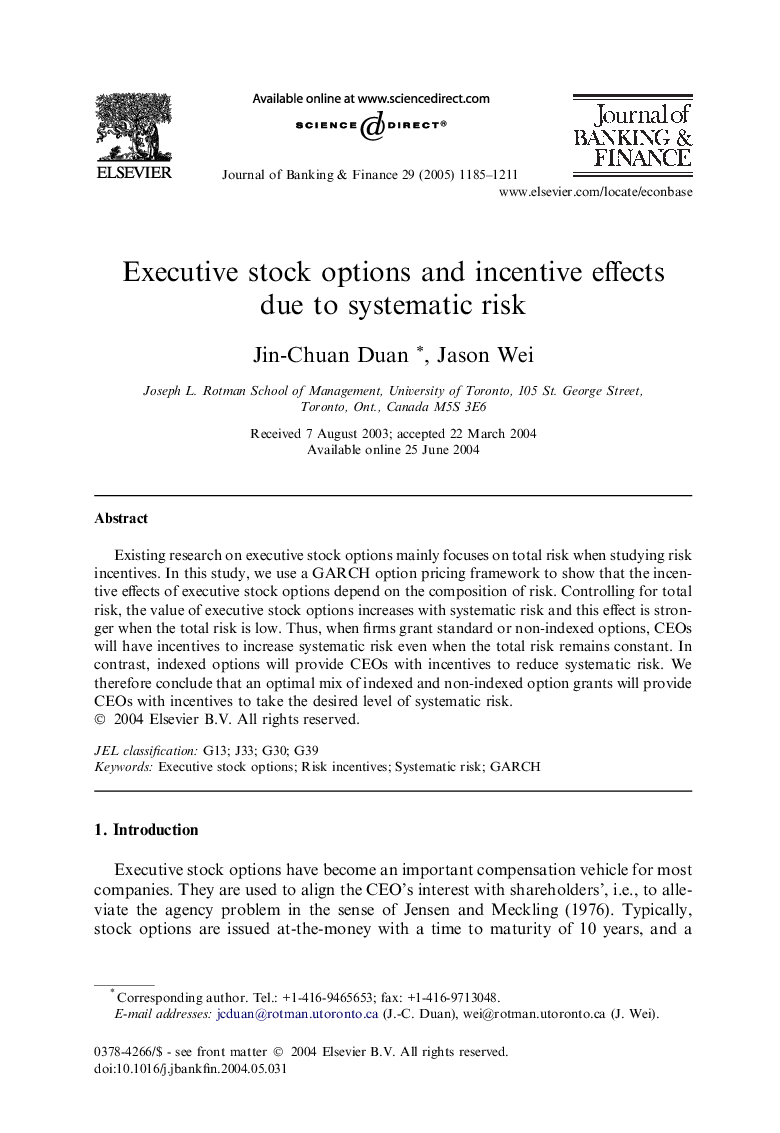| Article ID | Journal | Published Year | Pages | File Type |
|---|---|---|---|---|
| 9553888 | Journal of Banking & Finance | 2005 | 27 Pages |
Abstract
Existing research on executive stock options mainly focuses on total risk when studying risk incentives. In this study, we use a GARCH option pricing framework to show that the incentive effects of executive stock options depend on the composition of risk. Controlling for total risk, the value of executive stock options increases with systematic risk and this effect is stronger when the total risk is low. Thus, when firms grant standard or non-indexed options, CEOs will have incentives to increase systematic risk even when the total risk remains constant. In contrast, indexed options will provide CEOs with incentives to reduce systematic risk. We therefore conclude that an optimal mix of indexed and non-indexed option grants will provide CEOs with incentives to take the desired level of systematic risk.
Related Topics
Social Sciences and Humanities
Economics, Econometrics and Finance
Economics and Econometrics
Authors
Jin-Chuan Duan, Jason Wei,
